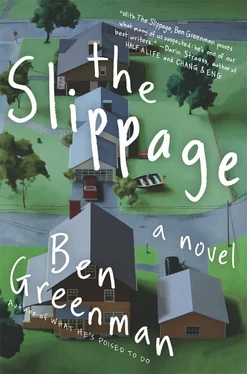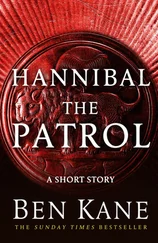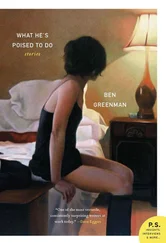On the bottom of the front page, there was a piece about a fire at the Sunny Isles Marina that too closely resembled the ones at the hardware store and bus station. The authorities were wondering whether the marina was a sequel to the depot. “Over the last few weeks, there have been a number of incidents with suspiciously similar fingerprints,” said the fire commissioner. “We’ve asked the police department to mobilize tactical units, which allows them to hold officers on shift.” There had been no deaths or serious injuries, only property damage. “But property damage is something,” the commissioner said. “People work hard for what they have.” William straightened up into this truth. This was the man he was, a responsible professional with a clear-headed interest in the world around him, not a disgruntled midlevel employee who had just straightened his arm into a senior executive’s face. He had learned, via e-mail, that his presence would not be needed at the office while human resources and legal measured out his fate. It would take a week, possibly longer. He sipped at his orange juice and imagined the moment when he would be asked to apologize.
“Morning,” Louisa said behind him. Her reflection in the sliding glass door rubbed its eyes. “Why are you up so early?”
“Busy day today,” he said. “Did I tell you about this investor who bailed out of TenPak?”
“You didn’t,” she said. “You probably sensed I wouldn’t be interested.”
“Well,” he said, “unless I really made the whole process clear to you, and then you’d be fascinated. People say they want a return on investment, but what they really want is the grind of the process. They want to feel their money coming or going, and most people, amazingly, don’t really care which. When the feedback stops, they lose their nerve.”
“You’re a little wound up this morning,” she said. “Is that why there’s no coffee? Did you make a pot and drink it all?”
“Funny,” he said. “No. I just couldn’t sleep and when morning came I felt ready to go.” William let a hand pet the dog’s head; it was the same hand he’d used to hit Hollister. “Want to carpool today?”
“Really?”
“Sure. I’m heading in soon, and I think I’ll be done on the early side, so I can even pick you up.” He had worked out the angles: he didn’t want to risk Louisa’s coming home early and seeing his car still there, in the driveway, so for the time being he would control whatever transport he could. “Less driving, more thriving. Save the world, save ourselves.”
After William dropped Louisa off at the museum, he made a right like he was headed to his office; then he pulled into a small parking lot a few blocks away, where he sat in front of a drugstore and watched a manager unlock the doors and turn on the lights. Nothing in the man’s gestures suggested excitement. William bought a tube of toothpaste he didn’t need and went back to the car, where he called Karla.
“What’s Christopher doing today after school?” he said. “I have kind of an easy day. Want me to pick him up and take him for a snack or something?”
“Really?”
“Sure. I had a good time at the park the other day.”
“Well, today he has a music lesson,” she said. “How about tomorrow?”
He tried not to agree too readily. “Okay,” he said.
“Sounds great,” Karla said. “Thanks. But no ice cream.”
“Don’t tell me what to eat,” he said.
The next day, a steel-gray Thursday, he arrived at school early — he had tried to drive around all day, even roamed across town in search of a sandwich shop he remembered from his youth, but he had found it too quickly — and waited outside in his car, wondering how long he had before someone grew alarmed at the sight of a man lurking on the avenue that bordered the campus. When the bell sounded, he looked for Christopher. Karla had told him exactly what corner the sixth graders used for dismissal. There was a shallow stairwell that came up from a paved play area, and at a few minutes past three a troop of children came into view, some talking to each other, some with their heads down, most looking for their grown-ups. A child with a flower on her shirt was followed by a child with confusion in his eyes, and this pattern repeated down the line, down the stairs, down through the years, forever. Christopher found the car and tried the door; William had forgotten to unlock it, and they teamed up for the lowest form of comedy, his attempt with the handle exactly overlapping William’s attempt with the lock. “Want some ice cream?” William said once Christopher was in and buckled.
“That’s okay,” Christopher said. “We had a birthday party at school and I had two cupcakes. My stomach is small.”
“Not as small as your brain,” William said. “I am offering free ice cream.”
They ordered for Christopher; William waved it off. “Grown-ups don’t need it,” he said, but he got a swirl cone when Christopher insisted. They sat underneath a huge elm that had been called the Suicide Tree since William was a child, because kids were always trying to climb it and always falling to injury.
“I would never do that,” Christopher said. “I’m not stupid.” He waited a professional beat. “Did you?”
“Ha ha,” William said. He remembered a time when Christopher, maybe a year old, had climbed into bed between him and Karla. William had already known that things with Karla were dissolving, and from a mixture of guilt and justice, he had started to leave the bed. “No,” Christopher had said, and pulled himself close to William. The boy was a line of warmth running up the center of his chest.
“I was thinking of a swirl cone, too, but I think I’m a little old for that,” Christopher said. At the edge of the shade, a little girl ate cotton candy with both hands, as if she were devouring a cloud.
Later, at home, William watched the first movie he found, a drama about a revolt in a Portuguese colony. He got up to fill a bowl with ice cream. The chocolate syrup was nearly empty; he drained the last few drops and got back to the movie. Some men fought for their life against colonial oppressors. Others finished out a bottle of chocolate syrup while they watched a movie about those people.
When the movie ended, William pulled a dining room chair flush to the front window and monitored Emma’s house. Looking outward, he saw his lawn, then the street, then her house, but he also saw his reflection in the inside of the window. Who was that man? He had imagined he might travel the world. He had imagined he might squander his fortune in the most interesting and daring manner. He had read a passage in a book about how a mind of the first order accepts no limitation of its freedom, and that had filled him with a kind of spaciousness that he thought, at the time, was hope. He had imagined many things. One of the things he had not imagined was that one day he would be sitting at the front window of his house, looking across the street in search of what was not even really freedom. Blondie trotted up and leaned her head against William’s leg. “Don’t bug me when I’m working,” William said. A bee bulled the windowpane. Rain soughed on the grass. “Go ahead and tell your mom on me,” he told Blondie. “See if I care.” The dog turned doleful eyes on William. Was she sad because she didn’t understand or because she did?
“I need you.”
“I’ve been dreaming of this call,” William said. “Well, some people would say dream. Others would say nightmare.”
“I need help.”
“On a workday?” William said. “Can it wait until the weekend?”
“Not really,” Tom said. “I need to move to a new studio. You have a car and, let’s pretend, muscles.”
Читать дальше












